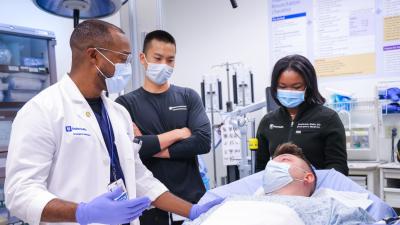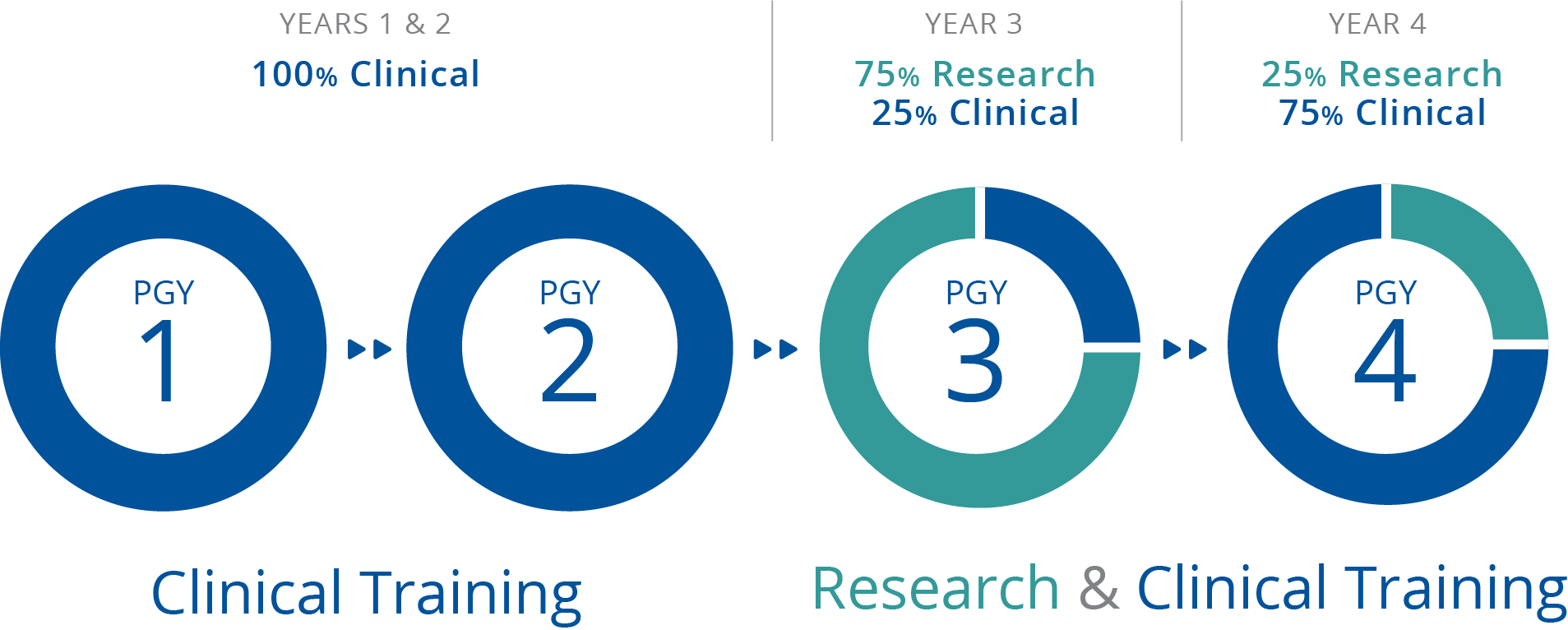
Innovation in Education and Training: the Duke EM Resident Research Fellowship
Photo above: Dr. Kendrick Kennedy, Medical Instructor in the Department of Emergency Medicine, trains EM residents
Duke Emergency Medicine aims to comprehensively train our residents to be able to access the full spectrum of a career in EM. For some, this includes advanced research training to augment their clinical training. Developing the research skills required to become a successful emergency physician investigator requires focused dedicated time and mentorship. There are many ways to obtain this training, including traditional post-residency research fellowships.
In 2017, Duke Emergency Medicine initiated a novel form of emergency medicine research fellowship: the Resident Research Fellowship. In this program, the resident fellow commits to an additional year of training in between the second and third traditional residency years to embed within a research lab or program. The resident fellow maintains clinical skills by working once a week in the emergency department. In their fourth post-graduate year, the fellow then completes clinical residency training with some supplemental time to continue working on their research. In this manner, the resident has the advantage of completing a two-year research project(s) while maintaining clinical training, and learning to balance an integrated career of clinical care and research.
The resident fellow’s training is further developed through supplemental didactics in general academic skills and courses individualized to their research interests throughout both years. One of the benefits of the program is the flexibility in training by individualizing development plans. Most of all, the goal is exposing emergency physicians earlier in their careers to the benefits of academic medicine and research.

Past and Current Research Residents
Since the start of the program, five residents have entered the program. We currently have two residents in the fellowship program.
Current

Mitchell Veverka, MD
Dr. Mitchell Veverka is working with colleagues from the Duke School of Engineering to develop a novel imaging device using photoacoustic technology.

Lauren Coaxum, MD
Dr. Lauren Coaxum is studying how to implement interventions to combat disparities in emergency cardiovascular care.
Past

John Eppensteiner, MD
Medical Instructor
Dr. John Eppensteiner studied damage-associated molecular patterns in an animal and in vitro model of sterile inflammation and is now a member of the Duke Emergency Medicine faculty.

Jinny Ye, MD
Dr. Jinny Ye obtained a grant during her fellowship year to study cardiac arrest resuscitation in a large multinational database and currently works at the Durham Veterans Affairs Medical Center.

Evangeline "Kami" Arulraja, MD
Dr. Kami Arulraja studied traumatic brain injury in both a mouse model and via translational clinical research methods. She is now in a two-year critical care fellowship at Duke. This training will include ICU training, functioning as an EM attending, and completing additional research.
Give to Duke Emergency Medicine
The Duke Department of Emergency Medicine relies on individual gifts and philanthropic partnerships to help support our clinical, research, and educational missions and to secure funds for the future.
